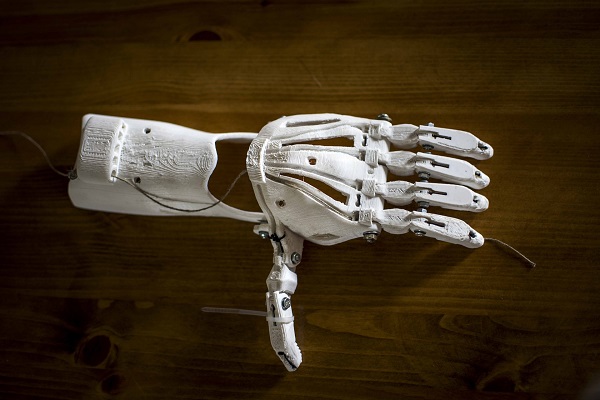If you want to work in the field of orthotics and prosthesis, which is one of the highest paying master’s degrees, you might be worried about the math requirements. You might have heard that having an aptitude for science and mathematics is an important part of success in a career that revolves around designing and fitting patients with medical devices. Unless your math skills are truly exceptional, hearing this may give you pause. Math certainly does play a role in orthotics and prosthesis fabrication, but it may be a smaller role – and more basic math skills required – than you might expect.
The Role of Math in Orthotics and Prosthesis
IMAGE SOURCE: Pixabay, public domain
How do orthotists and prosthetists use math in their day-to-day work? Before they can even begin constructing an orthopedic brace or a prosthetic limb, they have to take the measurements on which custom-fitted medical devices are based. Orthotists and prosthetists do this using instruments such as goniometers and medical tape measures, according to O*NET, and they must take precise measurements. This job function doesn’t require advanced mathematic techniques, but it does require you to be comfortable working with numbers and to appreciate the importance of attention to detail when taking numerical measurements.
Another aspect of an orthotist’s or prosthetist’s work that involves mathematics is the actual design of the medical device. Many design and fabrication processes today use computer-aided design software, which requires some degree of mathematics competency. Math is important in learning CAD, but you don’t have to be a math whiz to become proficient in using the computer-aided design and manufacturing software systems most widely used in the field of orthotics and prosthesis. If your math skills are on the weaker side, you may just need to devote more time and focus to becoming a competent designer using CAD software.
You might also need some math skills to operate accounting software, database software, spreadsheet software and medical practice management software, which often includes aspects of medical billing and statistical analyses on provider productivity.
The Types of Math Skills You Need to Work as an Orthotist or Prosthetist
What kind of mathematics skills, specifically, do you need to succeed in a role in orthotics and prosthesis? First of all, you should have full command of elementary mathematics skills and functions, including algebra and simple trigonometric equations. You should understand how differential equations play a part in biological modeling and be able to utilize simple mathematical techniques in areas of mathematics such as differentiation and integration. Finally, you also need to know how to use mathematical formulas and tables, as well as tools like calculators.
You might have noticed that advanced math skills aren’t part of this list. You don’t need to be an expert in college-level calculus, as long as your basic mathematical skills are solid and you have strengths in other relevant areas.
Gaining the Mathematics Skills You Need in Orthotics and Prosthesis
If you take a look at the prerequisites for orthotics and prosthesis master’s degree programs, you will notice that most of these required courses are in science – such as biology, chemistry, physics and human anatomy – rather than in math. A statistics course is a common requirement, but it doesn’t have to be a particularly advanced class. Many graduate orthotics and prosthesis programs don’t specifically require any mathematics coursework, and those classes that are math-based are usually statistics courses, sometimes included as part of an optional research track.
Since your math knowledge isn’t part of your graduate school curriculum, the math coursework you completed as an undergraduate student or as a high school student is where you develop most of your skills. If your bachelor’s degree program doesn’t require you to take a statistics class, either as part of your major coursework or your general education requirements, then you should take one as an elective if you want to be an orthotist or a prosthetist. It’s also a good idea to take a full college preparatory load of courses as a high school student, including courses in branches of mathematics such as algebra, trigonometry and introductory calculus.
If you’re afraid that your mathematics background is lacking, you can always take an undergraduate math course or two, as a non-degree student, to build up or brush up on your math skills.
Additional Resources
What Personality Traits Are Important to Have in Orthotics and Prosthesis?

